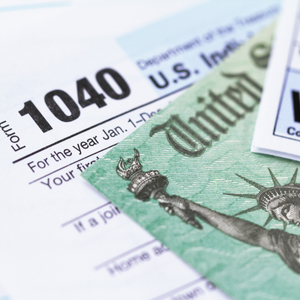
Selling a house with a lien in Raleigh, NC, might seem daunting, but understanding the lien’s impact is crucial for a successful transaction. In this blog, we’ll explore the nuances of selling property burdened by liens, including the legal implications, strategies for handling financial encumbrances, and steps to ensure a smooth sale process. Whether you’re a homeowner facing liens or a potential buyer, gaining insight into how liens affect property transactions can help you navigate the real estate market with confidence. Stay informed and make well-informed decisions by understanding the complexities of lien-affected property sales in the Raleigh area.
Key Highlights
- Liens can significantly delay or block property sales in Raleigh, NC, making their resolution crucial to the process.
- North Carolina’s laws prioritize tax liens, affecting the order of lien settlements during sales.
- Addressing liens involves thorough negotiations, clear disclosures, and adherence to legal compliance to ensure smooth transactions.
- Professional guidance from attorneys and real estate agents is crucial for effectively handling liens.
- Understanding lien impacts empowers sellers to protect their financial interests and ensure the successful sale of their homes.
Understanding Liens on Property in North Carolina
When it comes to real estate in North Carolina, understanding property liens is crucial, especially if you’re considering selling. Liens can complicate the sale process, but a comprehensive understanding of their types and impacts can help navigate potential challenges. From judgment liens to HOA liens, knowing how these legal claims affect your property is essential. Familiarizing yourself with North Carolina’s laws regarding liens will equip you with the knowledge needed to proceed confidently in the real estate market. Let’s dig deeper into the types and legal implications of property liens in North Carolina.
Types of Liens and Their Impact in North Carolina
In North Carolina, property liens can significantly affect a homeowner’s ability to sell and transfer a clear title. Liens fall into two main categories—voluntary and involuntary, and each type has different implications for the sales process.
These are liens that the property owner agrees to, most commonly mortgages or home equity lines of credit. Because they are consented to, voluntary liens are typically straightforward to manage during a sale, as they are settled with the proceeds when closing.
These liens are imposed without the property owner’s consent and can create significant challenges. Common examples include:
- Judgment Liens – Issued when a court rules against a property owner in a financial dispute. Judgment liens in North Carolina attach directly to real estate and must be paid in full before the property can be transferred with a clear title.
- HOA Liens – Homeowners’ associations may place liens for unpaid dues or fees. These liens can carry strong enforcement rights, including foreclosure if left unresolved, making them a serious obstacle to selling.
- Tax Liens – Local governments can place liens for unpaid property taxes. Because tax liens are prioritized high on the lien hierarchy, they typically must be resolved before any other debts, making them one of the most critical issues to address before selling.
Regardless of the type, liens can delay or even block a property sale until they are satisfied. Buyers and lenders require a clear title, which means that all outstanding liens must be either resolved or negotiated before closing. Sellers who understand the type of lien affecting their property and its priority are better positioned to plan, negotiate, and complete a successful transaction.
Whether voluntary or involuntary, liens significantly influence how and when a home can be sold in North Carolina. With proper preparation, legal guidance, and a clear strategy for addressing debts, sellers can overcome these challenges, ensure compliance with state law, and move forward with confidence.
What North Carolina Laws Say About Property Liens

North Carolina’s lien laws are designed to protect both property owners and creditors while ensuring that real estate transactions remain fair and legally sound. For homeowners looking to sell, understanding these laws is critical to avoid delays, disputes, or non-compliance.
One of the most important legal principles is lien priority, which dictates the order in which debts are paid. Tax liens generally take precedence, followed by mortgages, home equity loans, and other encumbrances on the property. Knowing this hierarchy helps sellers anticipate how sale proceeds will be distributed and what obligations must be cleared before transferring ownership.
Creditors can place liens on a property through the state’s legal system. For involuntary liens, such as judgment liens, creditors must typically file a lawsuit or obtain a court judgment to enforce their claim. Once recorded, these liens must be settled or negotiated before the property can be sold or refinanced.
North Carolina has specific statutes covering homeowners’ association (HOA) liens. HOAs can file liens for unpaid dues and, in some cases, pursue foreclosure if the debts remain unresolved. State law requires that property owners be notified and allowed to dispute or settle the claim, thereby balancing creditor rights with homeowner protections.
When selling a property encumbered by liens, North Carolina law requires full disclosure to potential buyers. Failing to disclose liens can result in disputes, legal complications, or even cancellation of the sale. Estate attorneys often play a key role in ensuring all disclosures and documentation are accurate and compliant.
Because lien laws can be complex, it is highly recommended to work with an experienced real estate attorney. Attorneys assist sellers in resolving liens, negotiating with creditors, and ensuring compliance with disclosure requirements. This not only protects sellers legally but also streamlines the path to a successful sale.
By understanding North Carolina’s lien laws—and securing professional guidance—homeowners can navigate lien challenges more confidently. Awareness of lien priority, enforcement procedures, HOA rules, and disclosure obligations helps sellers avoid pitfalls and move toward a smooth, legally sound transaction.
Liens can complicate the sale of a home in North Carolina. From taxes to judgments or HOA liens, these issues must be cleared before a title can be transferred. For a faster solution, Fair Cash Offers For Homes buys houses for cash in Durham, Cary, Chapel Hill, Garner, Apex, and Wake Forest—helping homeowners sell quickly and stress-free.
Preparing Your Home in North Carolina for Sale With a Lien
Selling a home encumbered by a lien in North Carolina requires strategic preparation and an understanding of the impact liens can have on the sale process. With various types of liens potentially affecting properties, sellers must address these issues head-on to ensure a smooth transaction. Awareness of specific steps to manage or clear liens can significantly aid in maintaining a property’s marketability. Furthermore, understanding how liens impact the real estate transaction timeline and processes is crucial for homeowners seeking to sell efficiently and legally. Let’s explore the essential steps and considerations involved in this process.
Steps to Address a Property Lien Before Selling
Selling a home in North Carolina with a lien requires careful planning and proactive steps to ensure a smooth transaction. Addressing liens early not only helps you comply with state laws but also makes your property more appealing to buyers.
Start by determining the type and amount of lien on your property. This often involves checking public records and consulting with a real estate attorney to fully understand your legal rights and responsibilities. Once you know what you’re dealing with, you can plan an effective resolution strategy.
In many cases, liens can be settled through negotiation. Creditors may agree to reduced payouts or structured payment plans, especially if it speeds up repayment. Any settlement should always be formally documented and legally binding—something best handled with the help of an attorney.
If possible, paying the lien in full is the most straightforward way to clear your title. Funds may come from personal savings, home equity, or even refinancing of existing mortgages. While refinancing can provide the necessary funds, it’s essential to carefully weigh the financial implications before pursuing this option.
North Carolina law requires sellers to disclose any liens to potential buyers. Transparency not only ensures compliance but also fosters trust and prevents disputes later in the process. Disclosure should include official documentation of the lien status and details of any ongoing negotiations.
Resolving a lien can take time, which may extend the sales timeline. Being prepared for delays and staying flexible during negotiations can help you manage expectations and keep the process on track.
By identifying, addressing, and disclosing liens early, sellers can minimize legal risks and financial surprises. With professional guidance from attorneys and real estate agents, homeowners in North Carolina can clear debts and move toward a successful sale with confidence.
How Liens Affect the Sale Process

Liens can significantly complicate the home-selling process, often introducing additional layers of complexity and, at times, delays. In most cases, a lien must be resolved before the property title can be transferred to the buyer. As buyers require certainty that no legal or financial encumbrances will attach to their property, sellers must manage liens proactively to keep the transaction moving forward.
In North Carolina, liens have a higher priority than most claims and must be addressed before the closing can take place. This can decrease a seller’s negotiating position and, in some cases, result in the seller making concessions on the purchase price to cover the settlement costs. Sellers must negotiate the clearance of a lien against a property’s marketability in the fiercely competitive Raleigh real estate market.
Liens often require additional verification, along with negotiations with lien holders and legal clearance, adding layers of complexity to the closing process. This can make fantastic communication and coordination between the buyer’s and seller’s attorneys, the agents, and the real estate practitioners more crucial than ever. Outstanding communication facilitates expectation management and smooth transaction processes.
Domestically and internationally, the imposition of a lien can become an intractable and perhaps damaging imposition. If the buyer is professional enough to realize that the settlement has not been disclosed, they would not hesitate to accept a settlement offer from the seller, thus relinquishing significant price appreciation, only to find themselves entangled in legal disputes. Diligent professional intervention integrates risk mitigation with transparency in process and outcomes.
Once practitioners in law and real estate are involved, sellers can efficiently handle the complexities associated with liens. The counsel ensures compliance with NC statutes, performs negotiations, and manages documents, while the agents support the marketing of the property, regardless of any encumbrances. Collectively, they offer the requisite skill and knowledge necessary to tackle barriers and accomplish a successful sale.
Instead of navigating months of negotiations, many homeowners choose to sell their Raleigh, NC house fast to Fair Cash Offers For Homes, knowing we can close quickly and take care of the hard parts. With our cash home buying process, you don’t need to worry about banks, inspections, or lien-related delays.
Financial Aspects of Selling a Lien-Burdened Property
Selling a property in Raleigh, NC, burdened by a lien, involves navigating complex financial considerations that can impact the distribution of sale proceeds. Addressing liens before sale is crucial to ensure both economic and legal compliance, thereby preventing future disputes and ensuring a smooth transaction. Understanding lien priority, particularly in real estate transactions, is key for sellers aiming to clear these obligations. Managing sale proceeds with clarity can facilitate a successful transaction despite challenges posed by liens.
Managing Sale Proceeds When a Lien Exists
In Raleigh, selling a property with a lien attached warrants meticulous consideration of how to divide the sale proceeds. Regardless of the vendor, all proceeds from a property sale are allocated to the clearing of lien obligations before any remaining sums can be retained. As far as the homeowners are concerned, it is essential to have a clear understanding of how the proceeds are divided and how many financial obligations can be settled before closing.
The proceeds from the sale of a piece of property are almost always allocated to the outstanding liens and paid off in a specific order. For instance, judgment liens are court-imposed and tend to sit at the top of the hierarchy; they must be settled promptly to avoid endless delays. Other debts to be discharged before the full legal title can be granted to the purchaser include mortgages, tax liens, and HOA liens. Understanding post-lien settlement balances is essential for executing subsequent actions effectively.
To prepare, real estate lawyers typically advise implementing a structured financial document that allocates funds towards specific financial uses. Satisfying all liens and protecting the seller’s funds are two benefits of having this document. In some cases, the seller’s initial asking price may need to be adjusted downward, while the seller may also need to negotiate with lienholders to make the transaction feasible. Full disclosure with buyers concerning outstanding liens, or transparency, indeed goes a long way in winning the buyers’ trust and avoiding avoidable last-minute hitches.
Smoothing out liens and planning the distribution of proceeds certainly helps the seller minimize worry while protecting their financial interests and reducing bottlenecks to the transaction. With proper financial supervision, homeowners can easily navigate lien-related obstacles to the sale’s completion by planning with the assistance of professionals.
Understanding Lien Priority and Its Implications
Understanding lien priorities is crucial when determining the order in which creditors will receive payment in the sale of specific properties in Raleigh, NC. Such factors significantly influence the seller’s revenue, the payment to creditors, and the seller’s ability to transfer a lien-free title. The remaining balance after a settlement is considered a seller’s net revenue.
Any due Federal income tax will be settled first, and after the tax lien, a second mortgage lien will be settled, as it represents a second significant debt against the property. The remaining judgment and other claims will be settled thereafter. Because no knowledge of this order can result in the seller’s remaining unsatisfied at the closing period of a sale, and further complications can arise due to the seller’s position in the discharge of the easement.
Knowing the order of liens will deepen the seller’s understanding of how much they will receive after all taxes and debts have been paid. This understanding order will also solve a part of the contract. It is a seller’s lien, and they would need to be aware of the existing legal claims and the process for clearing them. Unsecured legal claims make easements less favorable, which further pulls the attention and offers down, which buyers do not intend.
Attorneys specializing in estates are essential in assisting sellers with lien priority orders. They can negotiate with creditors, reduce payoff balances, or formulate a settlement to facilitate the sale. Financial advisors may also assist sellers in considering refinancing, debt restructuring, or other options for managing their obligations before listing the property for sale.
Sellers can avoid unpleasant surprises down the road by addressing lien priorities upfront. Meticulous planning and professional “at the unit” help eliminate all outstanding claims, reduce the seller’s financial exposure, and assist the unit to be more marketable. The risk mitigation strategy of aligning lien settlement with prevailing market conditions strengthens the seller’s negotiation position, thereby enhancing the probability of a seamless and lucrative deal.
Legal Procedures and Safe Practices for Selling
Selling a house in Raleigh, NC, with a lien requires careful navigation of legal procedures and safe practices to ensure a seamless transaction. Understanding compliance with North Carolina real estate laws is crucial for sellers to address any potential legal hurdles. By engaging with professional agents and estate attorneys, homeowners can obtain the necessary guidance for addressing liens. These experts facilitate the development of strategies that align with legal standards and safe selling practices, ensuring a successful sale even in the face of lien complications.
Ensuring Compliance with North Carolina Laws
When selling a house with a lien in Raleigh, NC, the legal procedures must comply with state laws within the state’s boundaries. There are rigid procedures for any legal transaction between a buyer/seller for real estate. These rules must be thoroughly understood by the selling parties to ensure a complication-free deal at the time of the transaction and throughout its duration. North Carolina lien laws aim to serve the interests of both property owners and creditors, which underscores the need for clear and practical legal processes.
It is a legal obligation on a seller’s part to rest any existing liens on a property on the potential buyers. Being honest about compliance and legal rules builds trust and also helps avoid disputes if, later on, it is discovered that any lien exists. The lack of fairness documentation and the insufficient legal protections afforded fail to justify the seller’s loss of legal contention.
The seller-buyer transaction lien order in North Carolina includes a real estate tax that is due before any claim can be paid. This payment order does not require payment of mortgages or secured claims of judgment over any advancing flow of cash. This payment sequence of dues has a significant impact on payment distribution and the flow of payments from buyer to seller. This payment sequence of dues also has a substantial effect on the distribution and flow of payments from buyer to seller.
Estate lawyers play a vital role in addressing a region’s legal needs. They handle lien settlements, liaise with legal entities, and accurately complete documentation while ensuring compliance with state statutory requirements. Their participation averts the potential for litigation or disputes after the sale of the property. These sellers achieve considerable peace of mind while the sale or purchase transaction is in progress.
Experienced agents in the North Carolina real estate market are skilled in helping sellers comply with regulations while marketing a property with lien encumbrances. They know how to present a property in a favorable light to prospective buyers while not stepping over the legal boundaries.
The consolidation of legal and real estate counsel in one file enables the seller to manage liens effectively and fulfill all disclosure obligations with confidence. They are also able to shift towards an unhindered closing. Compliance is no longer a question of “what is the legal permissibility of the transaction?” The question is how to execute the sale successfully.
Professional Help for Selling with Liens

The act of selling a house with a lien in Raleigh, NC, may seem complicated, but the presence of a professional significantly eases the burden. Real estate agents and real estate attorneys collaborate to assist sellers in resolving key issues in compliance with North Carolina laws, balancing both legal and financial concerns. Due to their proficiency in lien management, sellers can quickly fix them and proceed with the transaction.
Local agents have a firm grasp of the Raleigh housing market. They know how to showcase a property burdened with liens to potential buyers. Agents actively work to foster buyer interest by reinforcing property listings and encouraging buyers to consider the property despite its covenants. They assist buyers in performing due diligence to shield buyers from conflicts. They achieve the maximum possible resolution of lien management, considering legal costs, through their pricing approaches, which offer the seller a fair chance to make an attractive, competitive bid.
Involvement of legal counsel is crucial when liens are present on an estate. Estate lawyers specialize in complex lien matters, protecting the interests of the seller. These lawyers can negotiate directly with lien holders, which can result in reduced payoff balances or structured settlement arrangements. Compliance and documentation are also integral to the attorneys’ work, ensuring that all disclosures are made wholly and accurately. This legal oversight in North Carolina, like other places, gives comfort and avoids expensive blunders.
The benefits of expert assistance extend beyond just closing the sale. Lawyers and brokers can assess the financial impact of the lien, as well as the available resolutions, which may include refinancing or other options that utilize home equity. These options can alleviate the financial burden on sellers and improve their economic position upon moving forward.
The cohesive work of real estate agents and lawyers enables homeowners to have the confidence and tools to successfully sell their properties, regardless of the complications posed by the liens. These professionals work in such a way that what seems like a block to progress, within the sales process, is translated into steps that can be followed to complete the sale without legal or other complications.
Yes, you can sell a house with a lien in Raleigh, NC, but it requires careful planning and professional guidance. By working with experienced agents and attorneys, you’ll address lien challenges effectively, protect your financial interests, and increase your chances of a successful closing. Always seek expert help and conduct thorough due diligence to avoid complications and achieve the best possible outcome.
No matter your situation—whether facing liens, foreclosure, or just needing to sell fast—Fair Cash Offers For Homes provides a simple, reliable solution to help you move forward with confidence. Curious how we can help? Contact us at (919) 551-8506 today!
Helpful Raleigh Blog Articles
● Selling An Inherited House In Raleigh, NC
● Sell A Foreclosed Home In Raleigh, NC
● Selling Your Raleigh, NC, Home In Poor Condition
● Sell A Fire-Damaged House In Raleigh, NC
● Cost To Sell A House In Raleigh, NC
● Selling A Fixer-upper Home In Raleigh, NC
● Tax Responsibilities When Selling A House In Raleigh, NC
● Can You Sell a House with a Lien in Raleigh, NC
● How Long After an Appraisal Can You Close in Raleigh, NC
● Can the Executor of a Will Sell Property in Raleigh, NC?
● Best Things to Do in Raleigh, NC, With Kids
● Free Things to Do in Raleigh, NC

